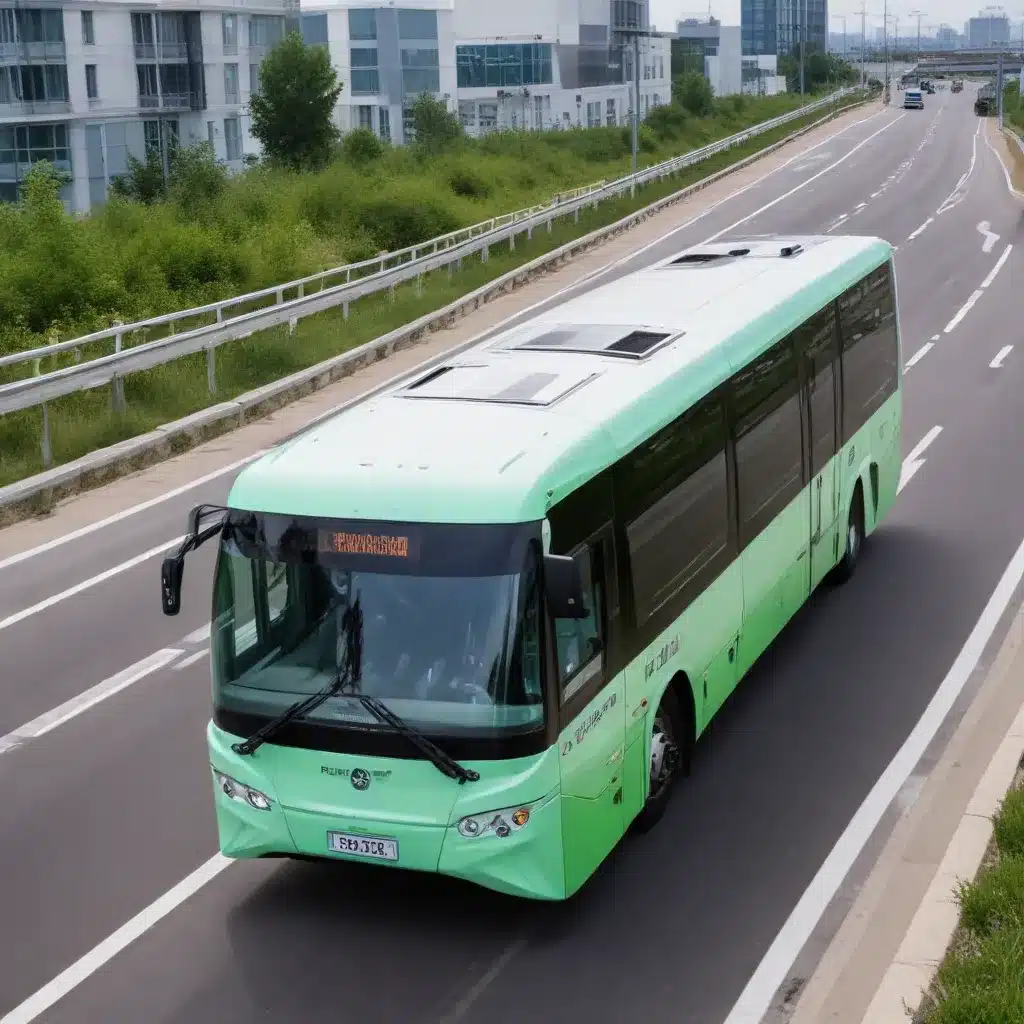
As Europe accelerates its transition to a clean energy future, the rise of the hydrogen economy has emerged as a critical pillar in the quest for sustainable transportation. The versatility of hydrogen, coupled with its potential to decarbonize hard-to-abate sectors, has positioned it as a key enabler in the continent’s ambitious climate goals. This article explores the synergies between sustainable transportation and the hydrogen economy, highlighting the opportunities for innovation, collaboration, and a cleaner, more resilient energy system.
The Hydrogen Economy
At the heart of the hydrogen economy lies the ability to produce, store, and utilize hydrogen as a clean, versatile energy carrier. This multifaceted energy system encompasses various components, each playing a crucial role in its successful implementation.
Hydrogen Production
The production of green hydrogen, generated from renewable sources like wind and solar, has emerged as a central focus. Countries like Chile, with its abundant renewable resources, are poised to become major exporters of this clean fuel. For example, the Netherlands is organizing a Green H2 Trade Mission to Chile, exploring opportunities to develop a robust green hydrogen supply chain and establish an import-export corridor between the two nations.
Hydrogen Storage and Distribution
Efficient storage and distribution of hydrogen are essential for its widespread adoption. Advancements in liquid organic hydrogen carriers (LOHCs) and cryogenic storage technologies are enabling the safe and cost-effective transport of hydrogen over long distances. The development of dedicated hydrogen pipelines and the repurposing of existing natural gas infrastructure are also key focus areas.
Hydrogen Fuel Cells
The emergence of hydrogen fuel cell technologies has further bolstered the hydrogen economy. These systems convert hydrogen into electricity, powering vehicles, industrial processes, and even homes and businesses. As fuel cell costs continue to decline and their performance improves, they are becoming an increasingly viable alternative to traditional fossil fuel-powered systems.
The Role of Hydrogen in Sustainable Transportation
The transportation sector is a significant contributor to global greenhouse gas emissions, making it a prime target for decarbonization efforts. Hydrogen’s potential to address this challenge is becoming increasingly apparent.
Decarbonizing the Transportation Sector
Hydrogen-powered vehicles, particularly fuel cell electric vehicles (FCEVs), offer a promising solution for reducing emissions in the transportation sector. By replacing conventional internal combustion engines with clean, efficient hydrogen fuel cells, FCEVs can significantly lower their carbon footprint, aligning with Europe’s ambitious goals for a net-zero emissions transportation system.
Hydrogen-Powered Vehicles
Advancements in hydrogen storage and fuel cell technologies have led to the development of FCEVs that can match or even surpass the performance and range of their fossil fuel-powered counterparts. Major automakers are investing heavily in FCEV research and development, and several models are already available in select markets.
Hydrogen Infrastructure Development
The widespread adoption of hydrogen-powered vehicles hinges on the availability of a robust hydrogen refueling infrastructure. Governments, industry players, and public-private partnerships are collaborating to establish a network of hydrogen fueling stations across Europe, ensuring the seamless integration of FCEVs into the transportation landscape.
Synergies between Sustainable Transportation and the Hydrogen Economy
The hydrogen economy and sustainable transportation are intrinsically linked, presenting numerous opportunities for synergistic development.
Integration of Renewable Energy
The production of green hydrogen, enabled by the abundance of renewable energy sources like wind and solar, can serve as a crucial link between the transportation sector and the broader energy system. Excess renewable electricity can be used to power electrolyzers, which split water molecules into hydrogen and oxygen, creating a flexible, long-term energy storage solution.
Lifecycle Analysis and Environmental Impact
A comprehensive lifecycle analysis of hydrogen-based transportation systems, considering production, distribution, and end-use, is essential for understanding the true environmental impact and sustainability of this energy vector. Ongoing research and collaboration are crucial for identifying and addressing any potential challenges in this regard.
Policy and Regulatory Frameworks
The successful implementation of the hydrogen economy and sustainable transportation requires robust policy and regulatory frameworks. Governments across Europe are introducing incentives, such as carbon pricing, emissions trading schemes, and renewable energy targets, to drive the adoption of clean technologies and foster a supportive ecosystem.
Opportunities for Innovation and Collaboration
As the hydrogen economy and sustainable transportation continue to evolve, a wealth of opportunities for innovation and collaboration emerge, paving the way for a more sustainable future.
Technological Advancements
Ongoing research and development in areas like electrolyzer efficiency, hydrogen storage solutions, and fuel cell performance are unlocking new possibilities for the hydrogen economy. Collaborative efforts between academia, research institutions, and industry partners are essential for accelerating these technological breakthroughs.
Emerging Hydrogen Applications
Beyond transportation, hydrogen is finding applications in diverse sectors, including industrial processes, power generation, and even the production of synthetic fuels. Exploring these emerging applications can create new revenue streams and further strengthen the business case for the hydrogen economy.
Partnerships and Ecosystem Building
Successful implementation of the hydrogen economy and sustainable transportation requires the collaboration of various stakeholders, including governments, energy companies, automakers, infrastructure providers, and local communities. Fostering strategic partnerships and building a robust ecosystem can help overcome challenges, share best practices, and drive collective progress.
As Europe continues its journey towards a sustainable future, the hydrogen economy and its synergies with the transportation sector offer a promising pathway. By harnessing the power of hydrogen, embracing technological advancements, and fostering collaborative ecosystems, the continent can accelerate its transition to a cleaner, more resilient energy landscape, ultimately securing a greener, more prosperous tomorrow. To stay informed on the latest developments in this dynamic field, visit the European Future Energy Forum.







